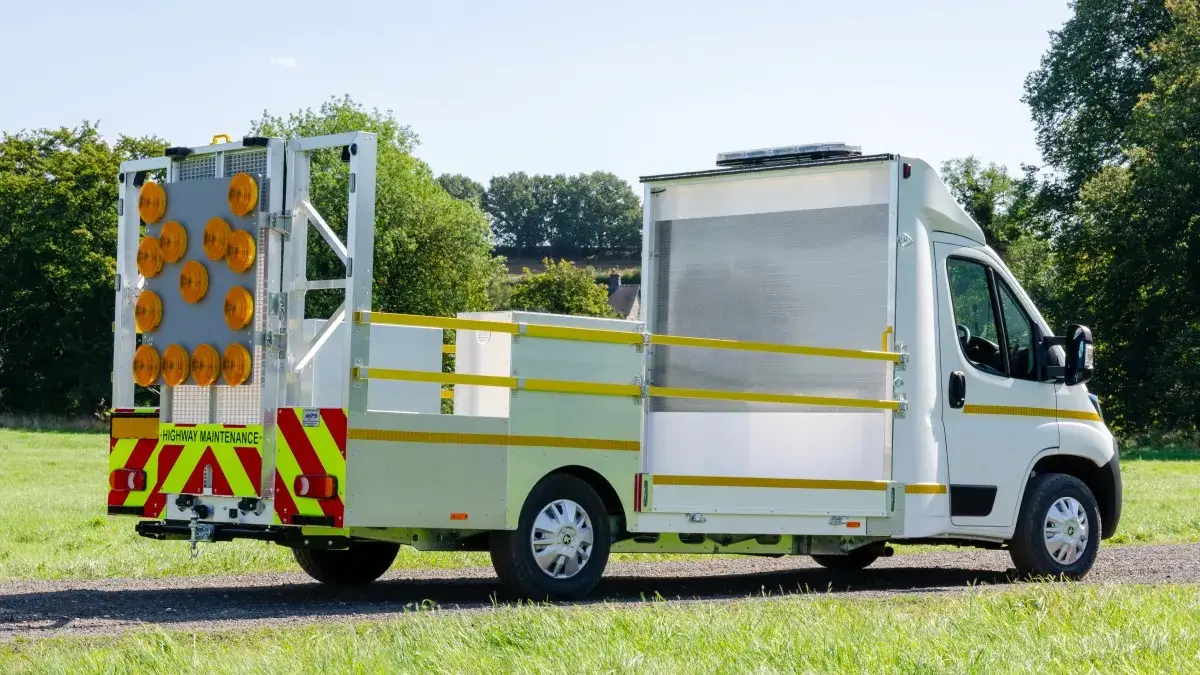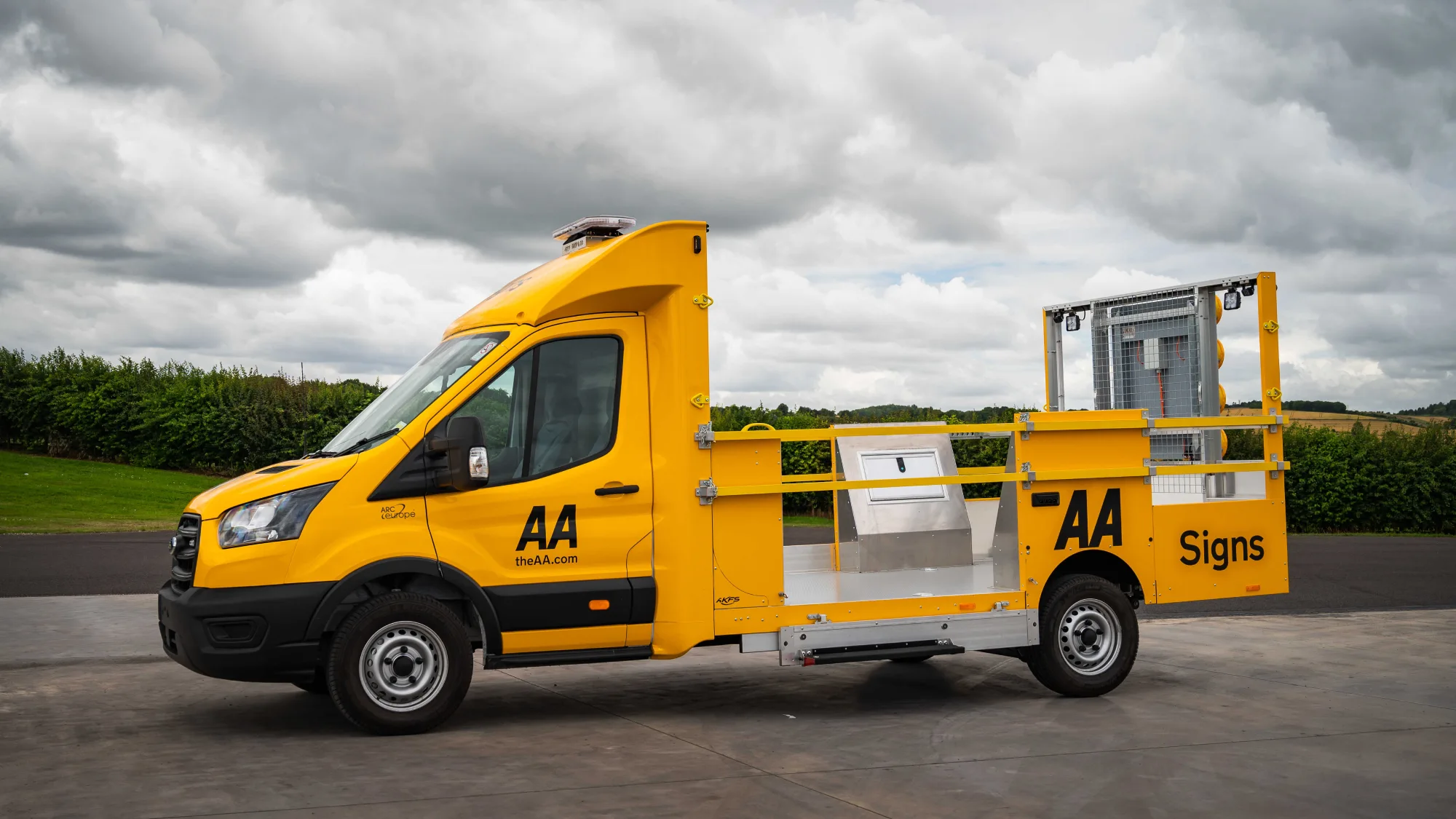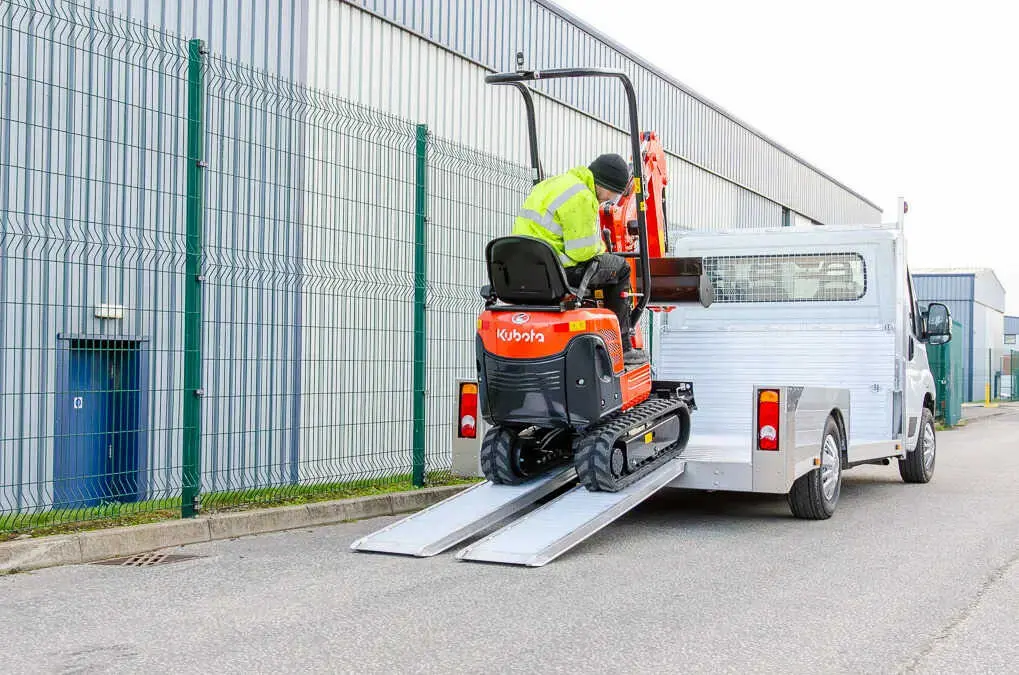Maximising the Lifespan of Your Commercial Vehicle Fleet
May 8, 2025

Running a fleet of commercial vehicles is a big investment for any business.
These vehicles are the real workhorses that keep logistics, transport, and all sorts of services ticking over, and when they're performing reliably, it makes a real difference to how smoothly and profitably your organisation runs.
Looking after your fleet so it lasts longer isn't just a good idea; it's a smart move that can save you a good bit of money and give you a real leg up in the long run. A fleet that's well looked after tends to have fewer breakdowns, uses fuel more efficiently, and even holds its value better when you decide to sell. This friendly guide from all of us here at AKFS gives you a good overview of the main things to think about when it comes to keeping your commercial vehicles in great shape for years to come.
Why Being Proactive with Vehicle Care Really Matters
Moving away from just fixing things when they go wrong and instead being proactive with your vehicle care is the key to making your commercial vehicles last longer. Proactive maintenance is all about those regular check-ups, servicing, and preventative repairs that help spot and sort out any little niggles before they turn into big headaches. This approach has so many benefits, like less downtime, lower repair bills in the long run, better safety for everyone, and vehicles that just perform better overall.
Getting a proactive maintenance schedule in place needs a bit of a plan. It starts with setting out clear guidelines for looking after each vehicle in your fleet, taking into account what the manufacturer recommends, how you usually use the vehicle, and the kind of environments it operates in.
Regular checks by trained technicians should cover all the important bits, like the engine, gearbox, brakes, tyres, lights, and all the fluid levels. Catching those little things during these checks and sorting them out quickly can stop them from becoming much more serious and expensive issues down the line.
Setting Up a Good Maintenance Routine
Having a well-thought-out maintenance routine is the foundation of looking after your fleet properly. This routine should outline how often and how thoroughly each vehicle needs servicing, based on either how long you've had it or how many miles it's done – whichever comes first. The manufacturer's guidelines are a great place to start, but you might need to tweak them a bit to fit how you actually use your fleet. Vehicles that carry heavy loads or work in tough conditions might need a bit more TLC more often.
Your maintenance routine should include everything from simple oil and filter changes to more in-depth checks of all the important systems. It's also a really good idea to keep detailed records of all the maintenance work done on each vehicle. This gives you a history of its upkeep, helps you keep track of when the next service is due, and can even help you spot any recurring problems or patterns. Using fleet management software can be a real help in keeping all this organised and making sure no vehicle gets forgotten.
Why Regular Check-Ups Are So Important
Regular inspections are a really vital part of proactive maintenance. These checks should happen often, ideally a quick once-over before each journey for things like tyre pressure and fluid levels, and then more thorough checks at scheduled times. Trained technicians should have a good look at all the key parts for any signs of wear and tear, damage, or if anything isn't working quite right. This includes listening to the engine for any odd noises or looking for leaks, checking the brakes to make sure they're working well and not worn out, checking the tyres for the right pressure and tread depth, making sure all the lights and signals are working, and checking things like oil, coolant, and brake fluid levels.
Getting your drivers to do a quick walk-around check before they set off is also a great way to catch potential problems early on. Giving them a simple checklist and encouraging them to report anything they're not sure about can help spot little issues before they become big ones. Sorting out these small things quickly can stop more serious damage and keep your vehicles on the road for longer.
The Benefit of Using Quality Parts and Fluids
Using good quality parts and fluids that are either genuine or approved by the manufacturer is so important for keeping your commercial vehicles performing well and lasting longer. While cheaper alternatives might seem tempting at the time, they can often wear out quicker, make your vehicles less efficient, and even increase the risk of breakdowns. Investing in quality components means you'll get better performance and reliability, which will actually save you money in the long run through fewer repairs and a longer life for your vehicles.
Similarly, using the right type and grade of lubricants and fluids, just like the vehicle manufacturer recommends, is crucial for keeping engines, gearboxes, and other important systems running smoothly. Using the wrong fluids can cause more friction, overheating, and even make parts fail. Sticking to the manufacturer's advice for fluids and filters is a simple but really effective way to look after your investment.
Looking After Your Tyres
Tyres can be a big expense for any commercial fleet, so looking after them properly is important for both safety and saving money. Checking your tyre pressures regularly is key to keeping your fuel efficiency up, making sure the tyres wear evenly, and stopping blowouts. Tyres that are too soft make the engine work harder, using more fuel and wearing out the edges of the tyre quicker. Tyres that are too hard can give a bumpy ride and wear out the middle of the tyre faster.
It's also really important to check your tyres regularly for any damage like cuts, bulges, or bits stuck in them. Keeping an eye on the tread depth and replacing tyres before they go below the legal limit makes sure you've got good grip and braking, especially when the weather's not great. Having a system for rotating your tyres can also help them wear more evenly and last longer overall.
Why Professional Servicing is a Good Idea
While you can do some of the basic maintenance tasks yourself, it's usually best to leave the more complicated servicing and repairs to qualified and experienced technicians. Professional service centres have all the specialist tools, diagnostic equipment, and know-how to properly identify and fix all sorts of vehicle problems.
Using professional servicing makes sure the work is done to a high standard, following the manufacturer's guidelines and safety rules. Trained technicians can also spot potential problems that you might not notice, helping to prevent breakdowns in the future. Regular professional servicing gives you peace of mind and really contributes to the long-term reliability and lifespan of your fleet.
Getting Your Drivers Involved
How your commercial vehicles are driven has a big impact on how much wear and tear they experience and how long they last. Giving your drivers good training on how to drive efficiently to save fuel, how to handle the vehicles properly, and why it's important to do daily checks can really help reduce maintenance costs and make the vehicles last longer.
Encouraging drivers to report any problems they notice with their vehicles straight away is also essential. Little issues that get sorted out early are usually much cheaper and quicker to fix than big failures that happen because things were ignored. Creating a culture where drivers feel responsible for their vehicles and take pride in keeping them in good condition can make a real difference to your fleet maintenance.
Using Technology to Help
Modern fleet management software has lots of useful tools that can help you keep on top of maintenance and make your vehicles last longer. These systems can keep track of when services are due, send you reminders, record all the maintenance that's been done, and even give you useful information about how your vehicles are performing and any potential issues.
By keeping all your maintenance information in one place and giving you data-driven insights, this kind of software helps you make proactive decisions and plan your maintenance strategies better. It can make things more efficient, reduce paperwork, and really help with the overall lifespan and reliability of your commercial vehicle fleet.
Planning Ahead for Replacements
Even if you look after your vehicles really well, they'll eventually reach a point where it's not economical to keep them going. Planning for when you'll need to replace vehicles is an important part of managing your fleet in the long term. Regularly looking at the age, mileage, and maintenance history of your vehicles will help you see when replacements might be on the horizon.
Having a vehicle replacement plan means you can budget for new vehicles and avoid any unexpected disruptions to your operations. Timing the replacement of vehicles strategically can also help you get the best price when you sell them and make sure your fleet stays modern, efficient, and up to date with the latest regulations.
If you're thinking about replacing or adding to your commercial vehicles, why not get in touch with our team today? We're specialists in creating bespoke commercial vehicle conversions and we're always happy to help.
You Might Also Be Interested In
Get In Touch With A Product Specialist Today
Here at AKFS our team of professionals are ready to answer any queries you may have. Get in touch or download a brochure to find out more today.




.webp)

